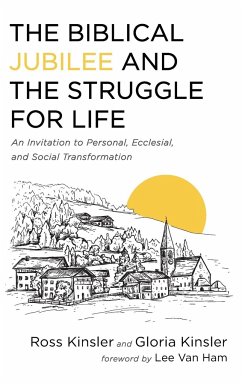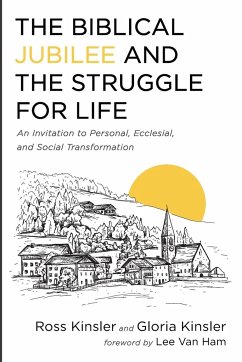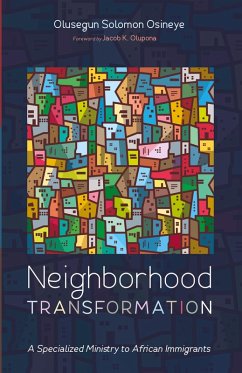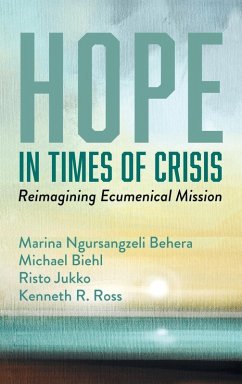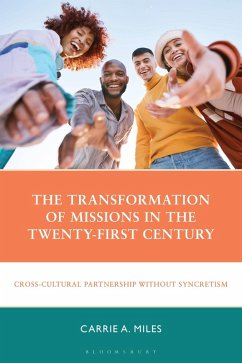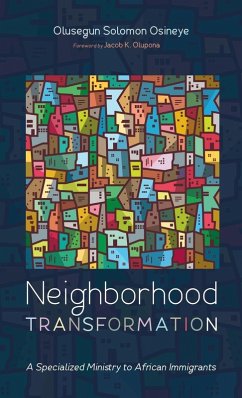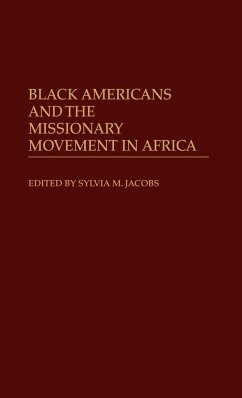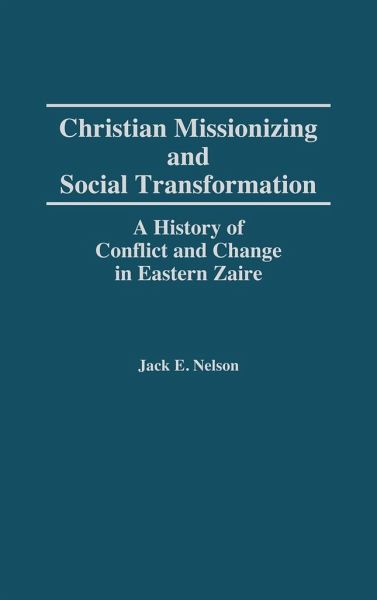
Christian Missionizing and Social Transformation
A History of Conflict and Change in Eastern Zaire
Versandkostenfrei!
Versandfertig in 1-2 Wochen
87,99 €
inkl. MwSt.

PAYBACK Punkte
44 °P sammeln!
This volume represents a case study of African responses to American missionary efforts in colonial and post-colonial Zaire. Jack Nelson describes how conflict emerged when missionary attempts to control the rate and nature of change and to protect the church community from corrupting Western influences confronted African aspirations to overcome foreign domination through education and economic means. Nelson relates an account of social forces transforming the missionaries' designs in the midst of colonial efforts, the encroachment of a cash economy, the rise of nationalism and political strug...
This volume represents a case study of African responses to American missionary efforts in colonial and post-colonial Zaire. Jack Nelson describes how conflict emerged when missionary attempts to control the rate and nature of change and to protect the church community from corrupting Western influences confronted African aspirations to overcome foreign domination through education and economic means. Nelson relates an account of social forces transforming the missionaries' designs in the midst of colonial efforts, the encroachment of a cash economy, the rise of nationalism and political struggles, and the formation of social classes. As a sociology of religion study, Christian Missionizing and Social Transformation analyzes both the changing social context in which a very prominent church community in Zaire was founded and developed and how the dynamics of change influenced African responses to missionary educational and evangelizing efforts. As a historical study, it documents one of the most severe struggles between a church community and a mission organization that occurred in the wake of Zairian independence. As a critique of American missionary practices, the study probes the ideals of a popular philosophy of mission and the reality of the implementation of that philosophy. As a study of the nature of the difficulties and conflicts within an African church, it offers considerable insight into the manner in which Africans are coping with the missionary legacy, the professionalizing of African clergy, the church as a development organization, and the ongoing efforts on the part of African theological students to produce an indigenous theology.





